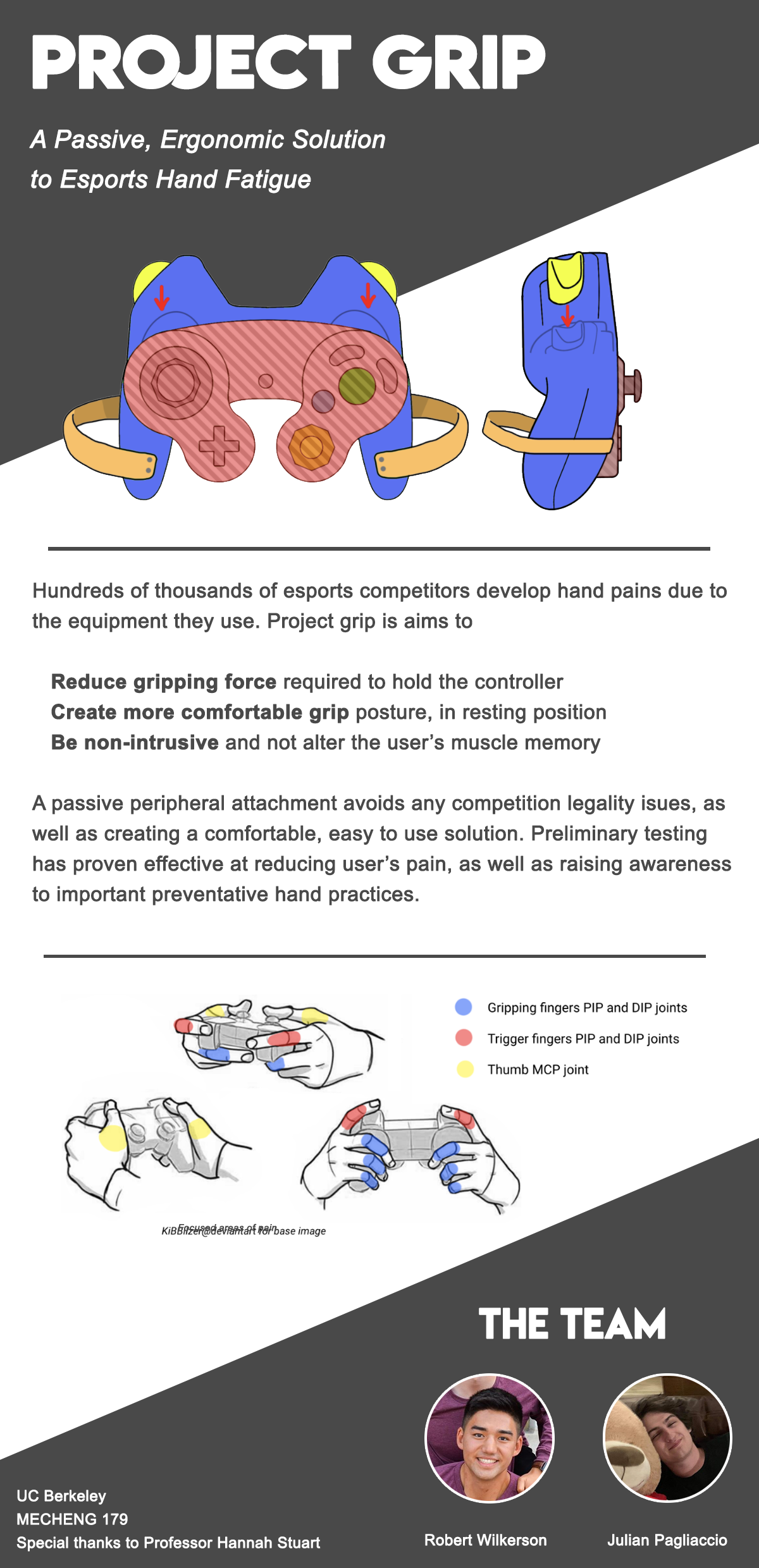
Team: Robert Wilkerson & Julian Pagliaccio
Course: MEC ENG 179/270 & DES INV 190-E: Augmenting Human Dexterity
The competitive gaming industry has seen continued growth over the last decade, with hundreds of thousands of people practicing in competitive “esports,” each year. As more people play, and more time is spent participating with video games, naturally hand fatigue and ergonomic difficulties have begun hindering player performance, as well as contributing to long-term pain in the user. Project Grip’s exploratory study examines ergonomic solutions to mitigate hand, wrist, and finger pain experienced by prolonged use of a specific console controller, a Gamecube controller.
For their research, an investigational device was devised to serve as a simple ergonomic augmentation to existing Gamecube controllers. The prototype was developed with proposed methods to validate the device to document the extent of pain relief provided to users. The goal of the study was to provide an initial foundation behind user-console controller interaction, to guide future ergonomic and biomechanical controller redesigns or augmentations.
Project Grip’s investigational device has tangible worth for competitors. If effective, the device could have a direct impact on the esports community for players looking to modify their controller or learn more about hand and ergonomic health. With its simple design, widespread accessibility can be straightforward with relatively few complications. The team hopes that their study has the potential to create a universal change to video game controllers, geared towards preventative hand health. And moreover, they’ve already received feedback from competitors that note their study as their first introduction to the importance of ergonomics, and their first time considering the impact of gaming on their hand health.
